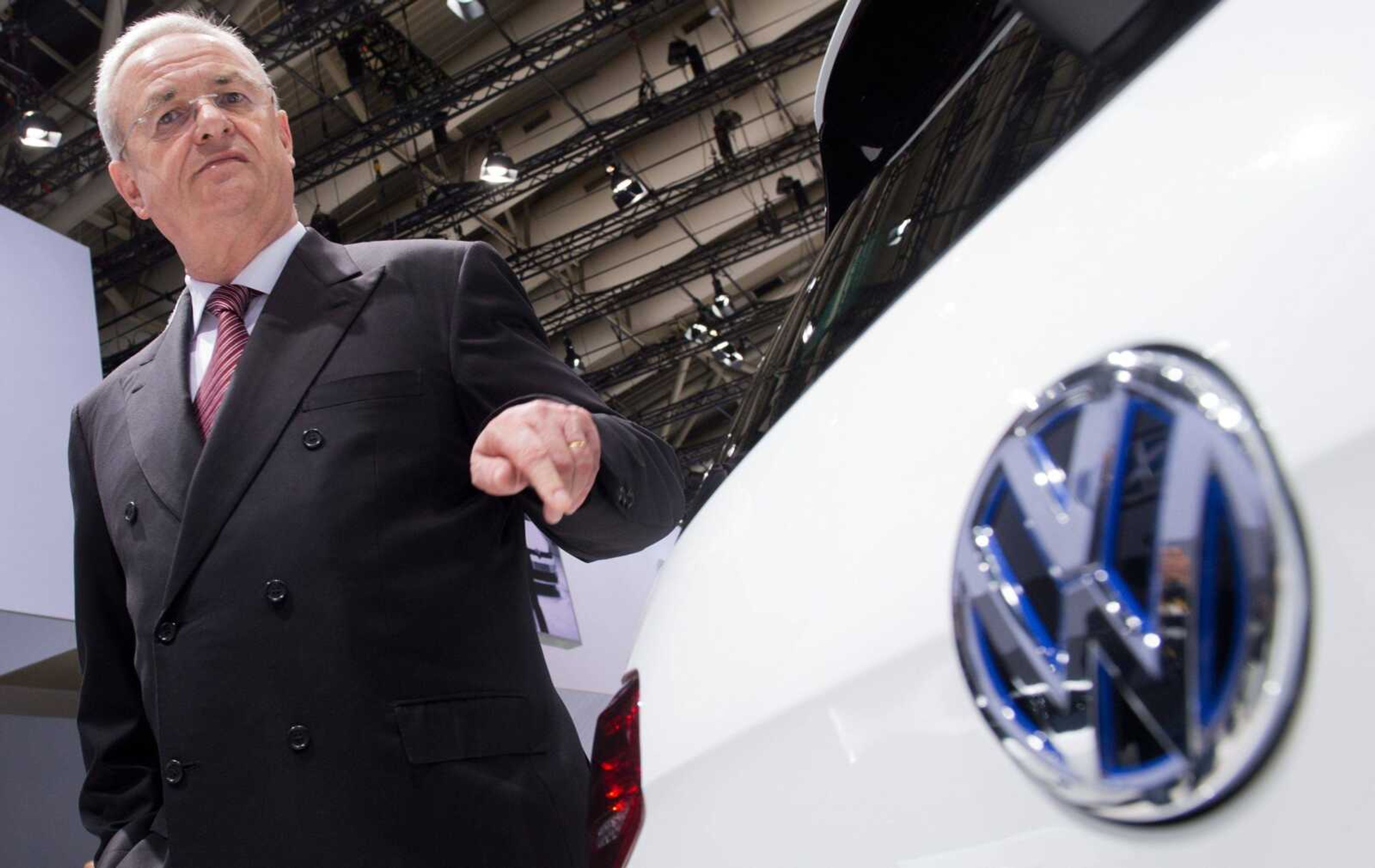German prosecutors open probe of former VW CEO
BERLIN -- German prosecutors are investigating former Volkswagen CEO Martin Winterkorn and another unnamed executive over allegations they didn't inform investors soon enough about the company's scandal over cars rigged to cheat on U.S. diesel emissions tests...
BERLIN -- German prosecutors are investigating former Volkswagen CEO Martin Winterkorn and another unnamed executive over allegations they didn't inform investors soon enough about the company's scandal over cars rigged to cheat on U.S. diesel emissions tests.
The Braunschweig prosecutor's spokesman, Matthias Diekman, said in a statement Monday the probe was opened at the behest of Germany's Federal Financial Supervisory Authority, the country's financial watchdog.
German stock market law requires publicly traded companies to alert investors as soon as they have unforeseen developments that could affect a decision to buy or sell the stock. Prosecutors said Volkswagen only made that notification Sept. 22, and there was evidence the disclosure obligation should have been fulfilled earlier.
The news release said the second employee is not the current board of directors' chairman, Hans Dieter Poetsch. Poetsch was chief financial officer under Winterkorn but since has left that post.
Volkswagen did not respond to calls seeking comment. The company already has said in response to an investor lawsuit it met its disclosure obligation. Volkswagen has said Winterkorn was sent a memo May 23, 2014, about emissions irregularities uncovered by an environmental group, but the company was not sure he saw it, and top officials discussed the matter July 27, 2015.
The company said earlier the issue was believed to be something that could be resolved through a settlement that would not impose heavy costs, and it still believed that to be the case in early September 2015. On Sept. 18, the U.S. Environmental Protection Agency issued a violation notice, leading Volkswagen to assess the risks as more serious and issue its investor advisory four days later.
Winterkorn stepped down as the scandal came to light, saying he was doing so "in the interests of the company, even though I am not aware of any wrongdoing on my part."
Volkswagen has admitted equipping cars with software that sensed when the car was on a test stand and turned off emission controls during everyday driving.
The company has apologized and commissioned a law firm to investigate.
It is negotiating a settlement with U.S. authorities in federal court in San Francisco on how it would fix or buy back about 500,000 diesels sold in the United States. About 11 million such cars were sold worldwide.
Volkswagen has set aside $18.3 billion from last year's earnings to deal with the costs of recalls and fixes.
Connect with the Southeast Missourian Newsroom:
For corrections to this story or other insights for the editor, click here. To submit a letter to the editor, click here. To learn about the Southeast Missourian’s AI Policy, click here.









